Pfizer Research Award, IRB and IOR researchers among winners
Institutional Communication Service
The Pfizer Prize Foundation awarded 11 studies and 21 researchers, including Dr Nicolò Pernigoni, Dr Elena Zagato and Professor Arianna Calcinotto of the Oncology Research Institute (IOR) and Dr Fernando P. Canale, Dr Camilla Basso and Professor Roger Geiger of the Institute for Research in Biomedicine (IRB).
The ceremony for the 32nd Pfizer Research Prize will be held in Zurich on Thursday, 26 January. The Pfizer Prize Foundation selected, out of some 60 submissions, 11 studies and 21 researchers in five categories: paediatrics; cardiovascular medicine; urology and nephrology; infectious diseases, rheumatology and immunology; neuroscience and neurology; and oncology. The prize for each paper is 15,000 CHF. Since 1992, the Foundation has awarded 425 researchers.
For oncology, the Pfizer Prize goes to two important research papers carried out in the Italian-speaking region of Switzerland.
The first, published in Science and for which Dr Nicolò Pernigoni, Dr Elena Zagato and Professor Arianna Calcinotto of IOR will be awarded, concerns the resistance of prostate tumours to anti-androgen therapy. In particular, the role of the gut microbiota, the population of microorganisms living in our intestines, has been identified, paving the way for new therapies.
Read more about the research.
The second research, published in Nature and for which Dr Fernando P. Canale, Dr Camilla Basso and Professor Roger Geiger of IRB will be awarded, concerns a possible improvement in the efficacy of cancer immunotherapy achieved by exploiting the ability of certain bacteria to survive inside tumours. A particular strain of Escherichia coli was engineered to convert ammonia, a waste product of cancer cell metabolism, into L-arginine. This immunomodulatory metabolite enhances the immune system's anti-tumour functions. “This discovery has inspired the design and starting of the first clinical trial assessing the role of gut microbiota in CRPC patients, and the opening of a IOR spin off company. The mission of the new start-up is to cure prostate cancer patients using bacterial-based therapies, for that we are looking for investors that can help to make our dream reality.” IOR researchers said.
Read more about the research.
All the awardees of the 32nd Pfizer Research Prize
Paediatrics
"In vivo prime editing of a metabolic liver disease in mice."
Dr Desirée Böck, Tanja Rothgangl, Dr Lukas Villiger; University of Zurich.
"Pollen exposure is associated with risk of respiratory symptoms during the first year of life."
Dr Amanda Gisler; University Children's Hospital Basel City and Countryside (UKBB); Inselspital, University Hospital Bern; University of Bern.
"Cumulative Antibiotic Exposure in the First 5 Years of Life: Estimates for 45 Low- and Middle-Income Countries From Demographic and Health Survey Data."
Dr Gillian Levine, PD Dr Julia Bielicki; Swiss Tropical and Public Health Institute, Allschwil; University of Basel; University Children's Hospital Basel City and Countryside (UKBB); St Georgeʹs University of London.
Cardiovascular Medicine, Urology and Nephrology
"Silent brain infarcts impact on cognitive function in atrial fibrillation."
PD Dr Philipp Krisai; University Hospital Basel; University of Basel; Cardiovascular Research Institute Basel.
"Skeletal Muscle Disorders: A Non-cardiac Source of Cardiac Troponin T."
Dr Jeanne du Fay de Lavallaz, Dr Alexandra Prepoudis; University Hospital Basel; Cardiovascular Research Institute Basel.
Infectious diseases, Rheumatology and Immunology
"Magnesium sensing via LFA-1 regulates CD8+ T cell effector function."
Dr Jonas Lötscher;
University of Basel, University Hospital Basel.
"Multifactorial seroprofiling dissects the contribution of pre-existing human coronaviruses responses to SARS-CoV-2 immunity."
Dr Irene A. Abela, Dr Chloé Pasin, Magdalena Schwarzmüller; University of Zurich; University Hospital Zurich.
Neuroscience and diseases of the nervous system
"Paradoxical somatodendritic decoupling supports cortical plasticity during REM sleep."
Dr Mattia Aime; Inselspital, University Hospital Bern, University of Bern.
"Twin study reveals non-heritable immune perturbations in multiple sclerosis."
Dr Florian Ingelfinger; University of Zurich; University Hospital Zurich
Oncology
"Commensal bacteria promote endocrine resistance in prostate cancer through androgen biosynthesis."
Dr Nicolò Pernigoni, Dr. Elena Zagato, Prof Arianna Calcinotto; Institute of Oncology Research (IOR), Bellinzona; Istituto Oncologico della Svizzera Italiana (IOSI), Bellinzona; Università della Svizzera Italiana, Lugano.
"Metabolic modulation of tumors with engineered bacteria for immunotherapy."
Dr Fernando P. Canale, Dr Camilla Basso, Prof DRoger Geiger; Istituto di Ricerca in Biomedicina (IRB), Bellinzona; Institute of Oncology Research (IOR), Bellinzona; Ente Ospedaliero Cantonale (EOC), Bellinzona; Università della Svizzera italiana, Lugano.




